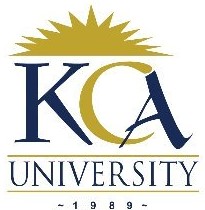
UNIVERSITY EXAMINATIONS: 2018/2019
EXAMINATION FOR THE DEGREE OF BACHELOR OF SCIENCE IN
INFORMATION TECHNOLOGY
BIT 4401/ BUSS 201: KNOWLEDGE BASED MANAGEMENT
FULL TIME/PART TIME/DISTANCE LEARNING
DATE: AUGUST, 2018 TIME: 2 HOURS
INSTRUCTIONS: Answer Question One & ANY OTHER TWO questions.
QUESTION ONE (Compulsory)
a) Differentiate between knowledge management and knowledge engineering? (4 Marks)
b) Identify three trends that will highlight the future of the knowledge worker (6 Marks)
c) Describe the advantage of KM over information management? (4 Marks)
d) Describe the link between personal learning and organizational learning? (4Marks)
e) Describe the difficulties or challenges of implementing Knowledge Management (6 Marks)
f) A knowledge audit helps the audited organization to determine what knowledge is being
managed and how well it is being managed. Describe with illustrations any knowledge audit
model that an organization can adopt in its KM initiatives. (6 Marks)
QUESTION TWO
a) Knowledge elicitation involves modelling the knowledge used by an expert to solve problems.
Describe briefly general methods that could be applied to elicit the knowledge needed to solve a
small complex problem. (10 Marks)
b) Recent advances in cloud technology have opened up new possibilities for the application of
knowledge management systems. Describe two knowledge based systems applications which have
been made possible by the availability of big data and cloud technology. (10 Marks)
QUESTION THREE
a) Give explanations with examples, three main mechanisms that a knowledge intensive firm
(KIF) can implement to ensure proper knowledge transfer among its staff. (9 Marks)
b) The aim of a strategic approach to KM is “to build, nurture, and fully exploit knowledge
assets through systems, processes, and people and convert them into value as knowledgebased products and services” (Earl, 2001, p. 228). Elaborate further on how knowledge can be
developed in an organization (8 Marks)
c) Describe the concept of common KADS (3Marks)
QUESTION FOUR
a) Describe how leadership style impact on the KM initiatives of an organization (6 Marks)
b) With reference to the SECI Model of Nonaka and Takeuchi (1995), explain how knowledge is
captured, disseminated, internalized and socialized. (8 Marks)
c) Explain how knowledge strategy can become a business strategy for a market oriented firm
(6 Marks)
QUESTION FIVE
a) Describe at least four responsibilities of the CKO (chief knowledge officer) in an organisation
(4 Marks)
b) Describe how information technology is used to bring out various solutions for managers in
decision making (6 Marks )
c) Differentiate between the product centered and process centered knowledge management
approaches (6Marks)
d) Explain why organisational learning is important for consistent growth of KM (4 Marks)
